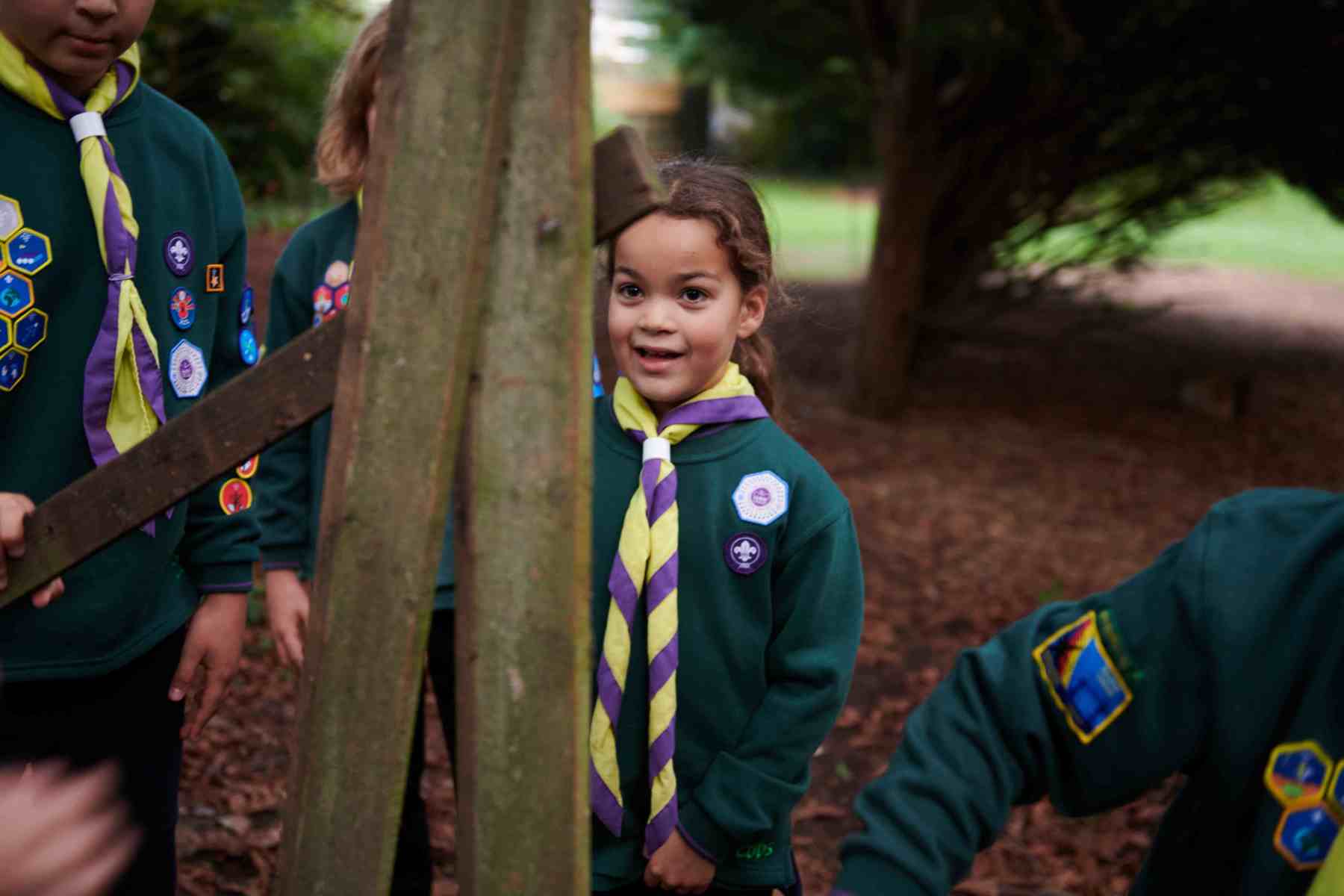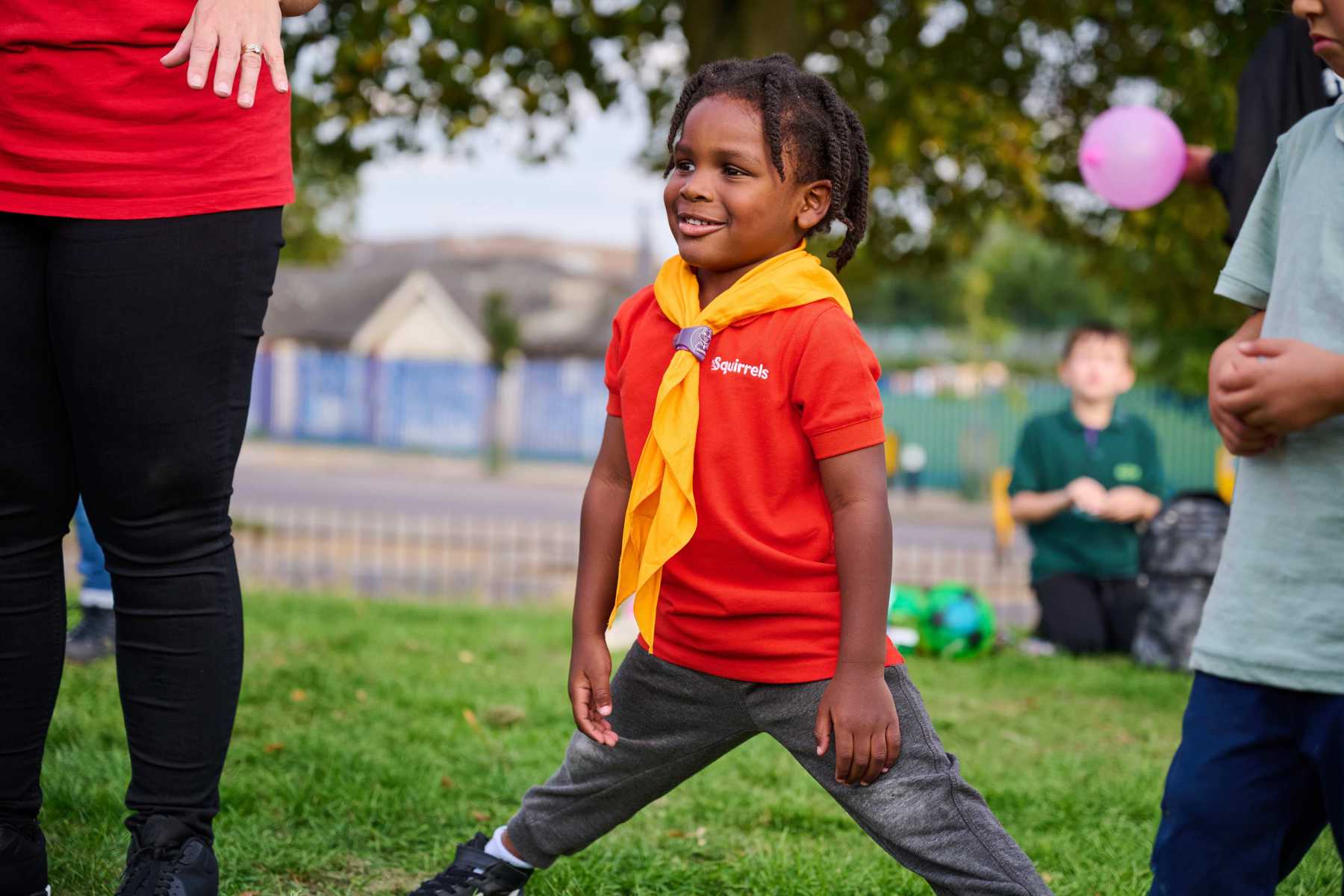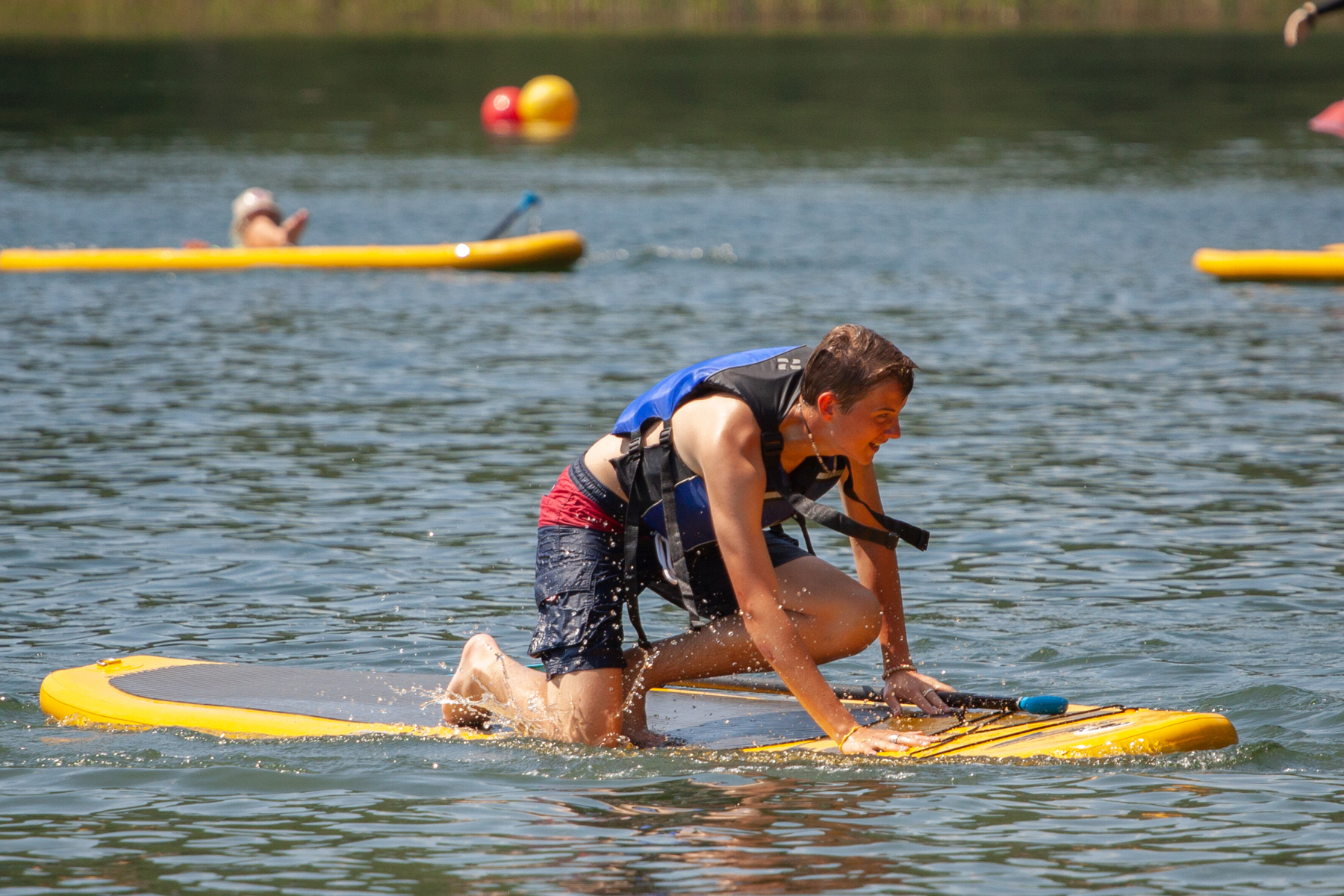How to run a sustainable camp or sleepover
Whether you’re holding a sleepover, an indoor residential, or going camping in the fields, there are ways to help make your trip better for the environment. Here are our top tips to plan an eco-friendly camp that everyone will enjoy!

Raise awareness.
- Have posters to remind people to turn things off, such as:
- Turn taps off while they brush their teeth
- Unplug anything not in use
- Turn lights off.
Switch out cleaning products
- Use natural or eco-friendly cleaning products, such as dish soap.
- Hang out clothes to dry on washing lines to avoid tumble dryers.
- Find campsites with eco-toilets to help reduce water usage.
Rethink how you drink water
- Ask everyone to bring reusable water bottles and flasks for drinks.
- Use buckets to catch any overflowing water from drinks dispensers and use it to water plants.
Save water
- Avoid having water fights, as this can waste water. Go puddle jumping instead.
- Use sponge ball alternatives for single-plastic water balloons.
- Make rain-water gauges and collect rain to water plants.
Turn lights off
- Use solar lighting outside.
- Switch to LED bulbs inside.
- Use rechargeable batteries for torches or equipment.
- Turn your heating and electronics off at home while you're away.
Stay local
- Hold the sleepover or camp at your local meeting place.
- Try plan activities that are close by.
- Remember to shop locally.
Get ready to ride
- Encourage everyone to walk or cycle to the venue.
- Invite people to bring their bikes or scooters to camp to help them get around the site.
- Remember, you can run some bike or scooter related activities.
Use public transport
- Choose campsites that are accessible by public transport.
- Ask people to car share, including adult volunteers.
- Mention car shares at the parent and carer meeting to help people connect.
- Look for an electric minibus or coach.
- Plan activities that you can get to on a bus, tram or train.
A green campsite
- Seek out greener camping sites with Greener Camping. They may have wildflower meadows, plant trees or have solar powered showers.
Plan your meals
- Cook with foods that are in season.
- Plan meals that use loose fruit and vegetables.
- Try some Veggie bakes or Pot pie pockets.
Shop sensibly
- Choose to go organic if you can.
- Aim to shop locally.
- Visit a local farmer’s market or zero-waste shop.
- Take a trip to pick-your-own fruit.
- Take re-useable shopping bags.
Minimise food waste
- Write a shopping list, so you don’t buy any unnecessary items.
- Use sensible portions for your group, making sure people know they can always ask for more.
- Compost any food waste with Creative composting.
Look after leftovers
- Safely store any leftovers, if you can.
- Use tinfoil, beeswax wraps or reusable boxes to store or wrap food.
- Use or donate any perishable food before you leave.
- If there’s food left at the end, offer it to your group to take.
Switch out plastic
- Make sure any cutlery and tableware is reusable and avoid single-use plastics. Metal and reuseable plastic are good options!
- You could try out biodegradable plates and cutlery alternatives.
- Swap out plastic straws for paper or metal straws.
- Use fabric or PVC tablecloths and fabric napkins that can be rewashed or wiped down and reused.
Go green to clean
- Bring cotton dishcloths and tea towels.
- Switch to reusable bamboo kitchen roll.
- Try to find biodegradable washing up liquid and soaps.
Cook wisely
- Try to avoid disposable barbecues, as they’re only single use.
- Invest in a portable barbecue for your group to use?
Get gardening
- Plant some seeds, such as sunflowers or strawberries.
- Create upcycled planters or decorate plant pots.
- Make wildflower seedballs.
- Put together a mini-garden in a baking tin.
- Use peat free soil, as it’s better for the environment.
Help clean up the area
- Organise a litter pick or beach clean up, depending on where you go. Remember to wear gloves, use litter picks and wash your hands well afterwards.
- Make posters to encourage people to put litter in bins and clear up dog waste.
Enjoy nature
- Make some butterfly or bird feeders.
- Build a bat box or bee house.
- Go on a nature scavenger hunt.
- Try den building.
- Find mindfulness in nature, with a walk or forest-bathing.
- Have fun jumping in puddles.
- Go cloud watching or star gazing.
- Plant some trees.
Learn to sew
- Teach everyone to sew, so they can learn to repair broken or damaged items.
- Make some puppets to practice sewing.
- Put together a quilt to demonstrate your new skill as a group.
Get creative
- Turn your bubble wrap into gift-wrap.
- Upcycle your unwanted t-shirts into tote bags.
- Avoid glitter, balloons, water balloons, and glowsticks, as they’re often single-used plastics.
Food, foraging and fires
- Go foraging for blackberries to create delicious fruity crumbles.
- Use eco-fire starters and firelighters if you're making a campfire.
- Choose Forest Stewardship Council (FSC) certified, sustainable logs for a campfire.
- If your group's collecting wood, opt for fallen timber instead of cutting wood off trees. Freshly cut wood can burn very badly, too.
Learn how to be greener
- Teach everyone about eating food that’s in season.
- Wise up to waste and learn how long rubbish takes to break down.
Have green messaging
- Reduce paper messaging, such as letters, where possible.
- Send information digitally via email, including digital consent forms.
- Have a WhatsApp group to help send out information.
- Tell everyone you're planning an eco-friendly camp to encourage sustainability.
Reduce paper usage
- Make sure any paper used can be recycled.
- Choose FSC certified paper.
- Use both sides of the paper
- Laminating paper prevents it from being recycled. Only laminate things that could be shared with another group or will be reused.
Use sustainable toiletries
- Use recycled toilet paper.
- Ask everyone to bring facecloths to avoid wet wipes.
- Sustainable toiletries (such as organic and vegan options, shampoo bars, toothpaste tablets, bamboo toothbrushes, and reef-safe, plastic free sun cream) can often be better for the environment, although they can be expensive.
- Take normal toiletries, rather than buying miniatures.
Recycle
- Have clearly labelled bins for recycling
- Have a compost bin for any food waste.
- Keep and store the scraps from crafts – you never know when they may useful!
Have some upcycled fun
- Make some upcycled wasted creatures.
- Create your own bowling game in rolling bowling.
- Make a crafty obstacle course
- Become cardboard captains
Battle of the bins
- Use compostable bin liner bags, instead of plastic bin bags
- Line the bin with a few sheets of newspaper, instead of bin bags
- Use the bin as a 'naked bin', and simply wash it out as needed.
Look out for litter
- Always take litter home with you if you’re camping.
- Look after the whole campsite with a litter pick, or find a local beach and organise a beach clean. Remember to wear gloves, use litter picks and wash your hands afterwards.
A clean machine!
- Your cleaning materials could be eco-products.
- Aim to use re-useable kitchen roll.
- Instead of paper towels, try to use micro-fibre cloths, dishcloths or tea towels to clean up spillages.
Know your kit
- Write a kit list to determine exactly what your group needs for your adventure.
- Instead of sleeping bags, can people bring their duvet in a bin bag for indoor residential events?
Buy for the group
- Buy a selection of kit for your group or section, so it can be reused.
Share in the local area
- Borrow from other groups or if anything can be shared between young people.
- Ask if parents and carers can lend spare kit they might have to others in the group, such as an extra sleeping bag.
Shop second hand
- Encourage everyone to buy second hand kit, if they need to.
Mend it
- Always clean and store equipment properly to prevent damage.
- Check any kit before using it. If it's broken, try fixing it before it goes in the bin.
- Offer broken equipment or kit to the local community for free. Someone may be able to use the spare parts to help mend their own equipment. It saves it going to landfill as waste, and it might help someone else out.

Keeping safe
Keeping everyone safe in Scouts is everyone’s responsibility.
All activities must be safely managed, and you can use the safety checklist to help you plan and risk assess your activity.
Always complete a risk assessment and take appropriate steps to reduce risk. You can use the safety guidance on each activity’s page to help you.
Remember, get approval for your activities, have suitable supervision and an InTouch process.
Make sure you know what to do in an emergency with the Purple Card.
Every adult should have a copy of the Yellow Code, which sets out guidance for all adults in Scouts.
Although the UK is not known for its high temperatures, we do experience heat waves from time to time, so you need to safely manage activities that’ll be taking place during the summer. Find our more on how to Stay safe in hot weather.
